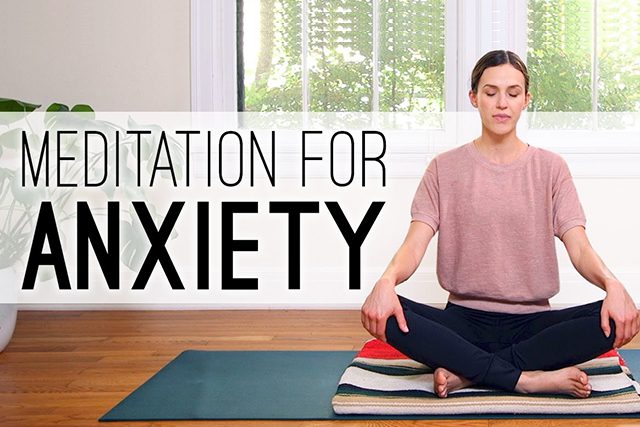
by Content Team | Sep 29, 2022 | Uncategorized

Now and then, we celebrate festive seasons thanks to Amazon, which is always all set to start its sale. Buyers can grab the best possible on various products. Here you can get the best discounts, bargains, lightning deals, and other offers.
With so many offers and discounts, it might seem a little confusing and overwhelming. Here, we provide some advice that will make it easier for you to browse and improve your chances of getting the best possible discount during the Amazon Sale.
- Get Amazon Prime Membership.
If you don’t have Amazon Prime Membership, then get it. It offers free shipping, lower prices, and early access to some products. Choose the monthly subscription option, which starts at Rs 179, if you don’t intend to be a Prime member for long.
- Get the cash rolling in Amazon Pay.
Perhaps the quickest method of payment on the e-commerce site is Amazon Pay. It’s easy to load balance into it, and doing so can help you save time and avoid the OTP problem.
- Plan in advance and make your list.
Get ready with your products. It will save you time, and you can escape from searching for unnecessary products. Making a plan in advance also aids in preventing any impulsive purchases that could be made during the sale.
- Use the Amazon notifications feature.
Personalized notifications are a feature of the Amazon app. You can access the app’s settings and click on Notifications to receive notifications about products that are on sale you may be interested in purchasing or those you have already explored.
- Look for Amazon-branded products.
Sometimes a company you may not be familiar with will offer you a “crazy” sale price. In this case, see whether Amazon has a comparable product because it’s likely to be deeply priced and might have a stronger brand promise.
- Alexa can be your good friend during the sale.
You can always ask Alexa to notify you when something is added to your Wishlist or placed in your cart. A feature in Alexa allows it to alert you before a particular deal becomes available during the sale.
- Save multiple payment options.
If you possess a credit or debit card from a specific bank, you will always be able to purchase specific items. Having your payment alternatives saved in advance is usually a smart decision because it will help you save time and perhaps even some more money.
- Don’t wait till the last minute.
Don’t wait until the last minute for sale to add your items to the cart. Instead, just put your cart ready before the sale gets starts. Even though you might not be able to see the discounted rates right now, it will only display the best price when you check out.
- Amazon Assistant for the desktop.
If you plan to buy your items from a laptop/PC, you can download Amazon Assistant, which will keep sending regular notifications on special offers and discounts regularly.
- Look for “Grand Opening Deals.”
Without providing any information, Amazon offers a section titled Grand Opening Deals. Watch out for these because they will only last a short time, and there may be good savings on recently released products.
- Check out every six hours for “crazy offers.”
Amazon also offers some “crazy offers” every six hours on sale, according to the website made for the Great Indian Festival, so there may be some alluring discounts available.


by Content Team | Sep 26, 2022 | Changing Personal Habits
Have you ever experienced a faster heartbeat when under stress? Perhaps when you are faced with challenging work or occasion, your palms start to sweat. This body reaction to stress is termed anxiety.
Everyone has unique triggers, and identifying them is one of the most critical components of preventing and regulating anxiety attacks. It may require some effort and thought to identify your triggers. You can do things in the interim to try and stop your anxiety from gaining over.
There are methods you can employ if you battle anxiety to stop feeling like it is controlling you. Here are some short-term fixes to help you deal with the situation immediately and some long-term strategies to prevent a repeating problem.
Signs of Anxiety Attacks
Some of the more prevalent emotional and physical signs of anxiety include:
- Nervousness or agitation with feelings of danger, fear, or dread
- Quick heartbeat
- Trembling, sweating, or chills
- Weakness or fatigue
- Abdominal discomfort
- Concentrate issues
- Hyperventilation
It’s also normal to simultaneously have both a panic attack and an anxiety attack. Focusing on an individual object, repeating a mantra, close your eyes, and going to your “happy” spot are further mindful coping mechanisms for panic attacks.
5 Quick Ways to Cope with Anxiety
Several quick natural cures could assist you in taking control of the issue if your anxiety is frequent and interfering with your ability to concentrate or complete chores.
- Identify and Learn to Manage your Triggers.
With the support of a therapist or on your own, you can discover triggers. They can occasionally be easily identified, such as when you consume caffeine, alcohol, or smoke.
It may take some time to pinpoint long-term problems, such as those regarding money or employment. This can call for additional assistance, whether in therapy or with friends.
When you identify your trigger, you should try to reduce your exposure. However, using alternative coping mechanisms may be helpful if you cannot minimize it, such as if it is caused by a stressful work environment that you cannot currently change.
2. Adopt Cognitive Behavioral Therapy (CBT)
CBT enlightens individuals in many ways to view and respond to events that cause anxiety. You can change harmful thoughts and actions before they wind with the therapist.
3. Do Routine Meditation
Though it takes some work to get the hang of it, attentive meditation over time can eventually teach your brain to block out anxious thoughts when they come to mind.
If concentrating on things is difficult for you, start with yoga or meditation. Then, you can get started using one of the many free guided meditations available on apps like InsightTimer.
4. Socialize
Spending time with friends and family regularly may help you manage your anxiety, even though everyone is different and not everyone has social anxiety.
The benefits of social interaction include reduced loneliness, increased sentiments of closeness and laughing, and stress relief. According to Research Trusted Source, having a strong social network can ultimately increase stress tolerance.
5. Keep a Journal
It could be helpful to establish the daily practice of writing down your thoughts and emotions in a journal. For some people, just writing their thoughts on paper can be comforting. However, it can also assist you in remembering when, how, and what kinds of situations cause your anxiety.
Conclusion
Your life may always include some level of anxiety, but it shouldn’t rule out your daily activities. It is possible to treat anxiety disorders of any severity to lessen their symptoms. Life ought to be much more pleasurable and less intimidating once you identify the best treatment.

by Content Team | Sep 26, 2022 | Changing Personal Habits
Your vibes are at an all-time high if you frequently feel sympathetic, upbeat, and prepared to take on the day. Even on a terrible day, you’ll recover more quickly, and the negative aspects of your life won’t bother you as much as they formerly did. On the other hand, if you’re feeling uninspired, unmotivated, or overall blah, your vibrations are probably low, and it’s time to look into these five simple strategies to raise them again.
List of 5 Ways to Raise Your Vibration When You’re Feeling Low
Therefore, when we vibrate at a lower level, we frequently feel destructive emotions like rage, jealousy, and melancholy. So, start everything you desire and adapt these five activities.
Meditate
Meditation can relax the mind, reduce anxiety and stress, and improve your understanding of your ideas and emotions. They are all vibrating activities! Spend time concentrating on your breath in a peaceful, relaxing environment (or make one for yourself at home with headphones). Don’t worry if your thoughts stray or become sidetracked; this is normal. Begin to bring it back to the breath by using compassion.
Do a Yoga Flow
Yoga poses inspire you to explore your body and mind more deeply, which releases trapped energy and raises your vibration. Additionally, your energy vibrates more when you move, so if you’re feeling particularly down, consider a flowing class like Vinyasa. A yin posture, such as a child’s pose, can significantly aid in system reset and mood elevation for tiredness.
Practice Mindfulness
An excellent technique to increase your pleasant vibrations is becoming more aware of yourself and your environment. After all, mindfulness can help us be more sensitive and thoughtful, which increases the likelihood that we would treat others and ourselves with kindness and compassion. Don’t let life slip you by; start being conscious.
Eat More Healthy, Sustainable Foods
Eat as many entries, plant-rich foods that don’t harm the environment as you can (think: no plastic). Most essential, pay attention to how eating particular meals makes you feel and avoid adopting a diet mentality in your quest for good vibes. Sometimes that enormous chocolate bar is the best decision for you regarding vibration.
Think Positive Thoughts
Since our thoughts impact our feelings, situations and events are frequently not as distressing as we perceive them. If your thoughts are too negative or problematic, you can discover that you are drawn to circumstances that support these emotions. The notion that our thoughts shape our reality has some basis in reality. Don’t avoid uncomfortable feelings, but also refrain from thinking negatively or excessively low vibrationally.
Conclusion
Several risk-free, efficient techniques improve your attitude and pleasant vibrations. Many are easy and uncomplicated: Get some exercise, get some quiet time, take a few deep breaths, and spend time being kind to the people you love (preferably in nature).

by Content Team | Sep 22, 2022 | Changing Personal Habits
Overthinking and persistent anxiety can frequently result in mental health and well-being problems. Deep breathing, meditation, self-compassion, and seeking medical assistance can all be used to reduce the tension that comes with overthinking.
Overthinking and worrying are natural human nature, but if these things become excessive, they can harm your mental and physical health. According to a study from 2021, obsessing over the same thoughts may even raise your risk of developing some mental health issues.
So what should someone who overthinks do? You can make progress with these suggestions.
Step back and find how you’re responding
Negative emotions, or recurrent thinking, can sometimes be maintained by how you react to your thoughts. Worrying frequently has harmful effects.
When you are in a situation where something is constantly going over in your head, examine how it makes you feel. For example, do you experience annoyance, anxiety, or guilt? What main feeling underlies your thoughts?
Self-awareness is essential for shifting your thinking.
Meditate
Establishing a regular meditation practice is an effective technique to quiet your mind of anxious chatter by focusing your focus inward. You only need to go peaceful area and five minutes.
Do something nice for someone else.
Trying to do something better for someone else’s can help you build perspective. Consider how you may help others who are going through a difficult time.
Positive thoughts can be gained by being aware of your ability to improve someone’s day. Additionally, it gives you something useful to concentrate on in place of your endless stream of thoughts.
Acknowledge your successes
Take a break from overthinking and pick a notebook or your preferred note-writing app on your phone. Then, list things that went well over the past week, along with your contribution to each.
These don’t have to be significant achievements. Doing so will acknowledge your little success, making you feel better. If it feels useful, you can check this list whenever you notice your thoughts getting off track.
Embrace your fears
You can never fully control everything. However, overthinking can be greatly reduced by learning to accept this. According to a 2018Trusted Source study, accepting unfavorable ideas and fears can benefit psychological well-being. Yes, it is not as easy as we think but seek out fair chances where you may handle the circumstances that bother you most.

by Content Team | Sep 20, 2022 | Self-Awareness
Research conducted over a decade ago showed that meditation reduces anxiety and stress, with potentially life-altering effects. Prolonged anxiety has been linked to depression, poor digestion, an increased risk of heart attacks, and a weakened immune system, and it can affect your entire body.
Here is how you can use meditation to reduce anxiety and move closer to better health and well-being.
- Simple breathing exercises to combat panic attacks
Panic attacks can be terrifying. Shaking, sweating, nausea, extreme dread, a racing heart, and even chest discomfort are possible symptoms. However, simple meditation practices can help you deal with a severe anxiety attack.
Start by removing yourself as much as you can from the unpleasant circumstance. Next, work on slow, deep breathing. Guy Joseph Ale, the founder of Lifespan Seminar, suggests a straightforward breathing technique to assist you in controlling stress. You could discover that a relaxing mantra helps you focus and regulates how long you hold each breath.
- Self-guided meditation to reduce anxiety
Even if you don’t experience panic attacks, anxiety can still have negative physical and emotional impacts. In fact, may feel “stressed out.” These things are particularly harmful because the harm to your body continues to exist and has even developed into a chronic condition.
- Find quiet time alone
Give yourself some self-time. Whether it is an hour or 15 minutes, make the most of it! Shut off your phone and block out all outside noise. Consider playing calming music at a low volume if outside noises like traffic distract you.
- Make yourself comfortable
Lying down may seem relaxing, and you might benefit from sleep. But learning how to be mindful and control your tension while awake is also an element of practicing meditation to lower anxiety. A cozy chair, pillows for the floor or to use as bedposts, or a meditation pillow can all be beneficial.
- Relax with measured breathing
To calm your entire body, you can take slow and measured breaths can help. Just inhale from your nose slowly and deeply, then hold your breath for a moment and exhale through pursed lips. You can adjust your breathing pattern until that sensation reduces. Practice to breath from your lower chest and belly, also known as diaphragmatic breathing.
- Consider using visualization techniques
You might discover that within a few seconds, ideas like goals, outcomes, and other things start to cross your mind. If you wish to get rid of them, visualizing can help. Whatever relaxes you, imagine it. Imagine a serene lake, forest retreat, or ocean with waves that move in sync with your breath. Such images not only assist in reducing anxiety, but they also help you forget about your troubles.













